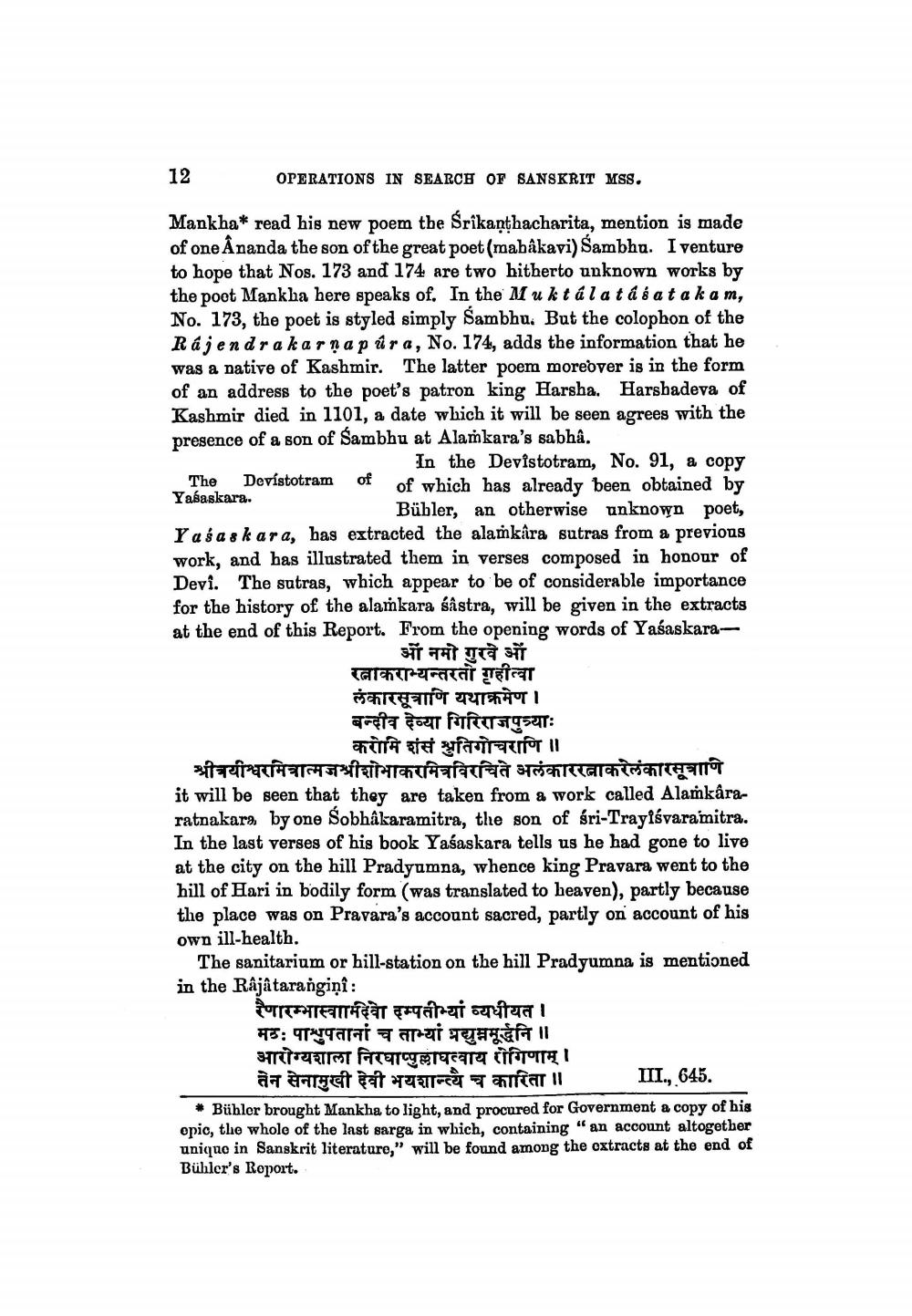________________
12
OPERATIONS IN SEARCH OF SANSKRIT MSS.
Mankha* read his new poem the Srikanthacharita, mention is made of one Ânanda the son of the great poet (mabâkavi) Sambha. I venture to hope that Nos. 173 and 174 are two hitherto unknown works by the poot Mankha here speaks of. In the Muk tálat sat a kam, No. 173, the poet is styled simply Sambhu. But the colophon of the Rajendra karna púra, No. 174, adds the information that he was a native of Kashmir. The latter poem moreover is in the form of an address to the poet's patron king Harsha. Harshadeva of Kashmir died in 1101, a date which it will be seen agrees with the presence of a son of Sambhu at Alamkara's sabha.
In the Devistotram, No. 91, a copy istotram of of which has already been obtained by Yabaskara.
Bübler, an otherwise unknown poet, Yasaskara, has extracted the alamkâra sutras from a previous work, and has illustrated them in verses composed in honour of Devî. The sutras, which appear to be of considerable importance for the history of the alamkara śâstra, will be given in the extracts at the end of this Report. From the opening words of Yasaskara
___ओं नमो गुरवे ओं रत्नाकराभ्यन्तरतो गृहीत्वा लंकारसूत्राणि यथाक्रमेण । बन्दीव देव्या गिरिराजपुत्र्याः
करोमि शंसं श्रुतिगोचराणि ॥ श्रीत्रयीश्वरमित्रात्मजश्रीशोभाकरमित्रविरचिते अलंकाररत्नाकरेलंकारसूत्राणि it will be seen that they are taken from a work called Alamkararatnakars by one Sobhâkaramitra, the son of sri-Trayiśvara'mitra. In the last verses of his book Yaśaskara tells us he had gone to live at the city on the hill Pradyumna, whence king Pravara went to the hill of Hari in bodily form (was translated to heaven), partly because the place was on Pravara's account sacred, partly on account of his own ill-health.
The sanitarium or hill-station on the hill Pradyumna is mentioned in the Râjâ tarangini:
रैणारम्भास्वामदवा दम्पतीभ्यां व्यधीयत । मठः पाशुपतानां च ताभ्यां प्रद्युम्नमूर्द्धनि ।। आरोग्यशाला निरघाप्पुल्लापत्वाय रोगिणाम् ।
तेन सेनामुखी देवी भयशान्त्य च कारिता ॥ III., 645. Bühler brought Mankha to light, and procured for Government a copy of his opic, the whole of the last sarga in which, containing "an account altogether unique in Sanskrit literature,” will be found among the extracts at the end of Bühler's Report.




